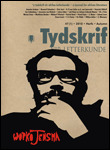Die spore van Raka: oor herskrywing en kanonisering (Deel 1)
DOI:
https://doi.org/10.4314/tvl.v47i1.50483Keywords:
canonisation, Raka, N. P. van Wyk Louw, rerealisationAbstract
Every literary system possesses a canon with the classical canon as the most stable and simultaneously the one with the most restrictive access. Writers and texts can only maintain their position within the canon through continuous rewriting: critical rewriting by literary critics (as shapers of taste and gate-keepers) and creative rewriting by fellow writers. In this study the critical rewriting (and rerealisation) of one of the most acclaimed and seminal texts in Afrikaans literature, Raka (1941), by N. P. van Wyk Louw is scrutinized. Since its publication this verse epic has been firmly entrenched in the classical Afrikaans literary canon and its continuous rewriting / rerealisation can act as a case study of how a literary “masterpiece” is dependent on institutional relationships, relevant characteristics and strategic position-taking within a literary field in order to retain this status. Against the backdrop of a theoretical framework set out in part one of this study, the specifics of Raka’s rewriting / rerealisation is discussed in the second part.
Downloads
References
...
Downloads
Published
Issue
Section
License
Copyright (c) 2010 Tydskrif vir Letterkunde

This work is licensed under a Creative Commons Attribution-ShareAlike 4.0 International License.


 https://orcid.org/0000-0001-6465-6584
https://orcid.org/0000-0001-6465-6584


.png)